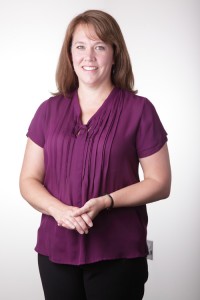Katherine Turpin is Associate Professor of Religious Education at Iliff School of Theology. She recently spoke with Janel Kragt-Bakker, former Associate Director of the Collegeville Institute, about her work with the Collegeville Institute Seminar on Vocation Across the Lifespan.
How has your understanding of vocation evolved through participating in the Seminar?
The Seminar has deepened and stretched my sense of vocation, both by working across disciplines with theologians and social scientists, and working ecumenically with scholars across Christian traditions. Listening to how others talk about vocation calls into question my own characteristic ways of talking about vocation. So it has been a transformative process to dig deeply into the language and limitations of vocation.
Thinking about vocation after retirement when people start to wonder whether they still have a vocation has made me re-think what vocation means for the forward-looking ages of youth and young adulthood. For example, most of what is written about young adults is written about college students. If you look sociologically, that’s a third of the U.S. population. So what does vocation mean for the other two-thirds? It was a sobering moment, because those two-thirds are people we should be caring about.
The dark side of vocation has been a part of our conversation in ways I hadn’t thought about before: the costs of having a vocation, the exploitation of people’s vocations by larger systems, the way that language of self-sacrifice for a greater good can lead to burnout or devastation.
In your book Branded: Adolescents Converting from Consumer Faith (Pilgrim Press, 2006), you write about cultural scripts that shape young people’s sense of calling. How did you become interested in the topic of vocation with young people?
When I was working as a youth director in a church that was highly committed to social justice, I had a conversation with a young person named Michael whose parents were theologically educated social workers. It was an intense conversation about the fight he had with his mother over the brand of shoes he was buying. I began to ask how religious education could disrupt the script of consumption that kids are so buried in.
This conversation was emblematic of our culture’s distortion of vocation. Vocation gave me a way to name the problem—that consumer culture is the filter through which young people understand what they are called to be and do in the world.
Is consumerism the dominant cultural script for youth and young adults?
Youth are a particularly targeted market because corporations want lifelong consumers, and young people are avid consumers of popular culture in the eight hours a day they spend interacting with mass media. But this cultural script is strong for all of us in the U.S.—so ubiquitous that we simply breathe it and don’t think about it. It is a complicated, multi-layered narrative that plays into so much of what we do.
In Big Questions, Worthy Dreams, Sharon Daloz Parks describes how young adults never have a space to ask what’s important in the world because it’s simply offered to them. What’s important is to do well in school, get a good job, and make money. But these things can be a success trap, too. I have pastor friends who describe how members of their congregations reach the top and then suddenly start asking, “Is this all there is?” So it is challenging both for people who succeed in that narrative, and for those who don’t have the access needed to succeed. This narrative still functions as the measure of success.
What do calling and vocation look like for those who don’t have privilege?
After Branded, I wrote another book with a colleague, Nurturing Different Dreams: Youth Ministry across Lines of Difference. We struggled with whether vocation was a white, middle-class privilege—whether the luxury of choice in employment and life situation that is often linked with vocation meant that we needed to let go of the term. Or could we redeem the term by saying that people are still called within difficult situations even if they don’t have a choice in how they exist?
Vocation often evokes the sense that “the whole world is out there, so what should I do with my life?” or “What is God calling me to do?” But there is so much of the world where people don’t have that kind of expansive possibility. I think people struggle with questions of meaning and purpose in what they’re called to be and do in the world no matter their life situation. But I also think the ways people reflect on vocation and their practices of discernment are so different and contextual that it’s worth asking the hard questions.
How can congregations help vocation speak to people’s lives?
What congregations do is help people of all ages imagine the world differently. They offer alternative stories about what’s important in life and different ways of remembering who we are and whose we are. Consumer culture is like original sin: something that all of us struggle with, like racism or other narratives about human life that we wish didn’t exist. I don’t think that congregations can erase these, but they offer other currents that challenge these scripts, especially when crisis moments arise and people start asking about the deeper meaning of life.
Like this post? Subscribe to have new posts sent to you by email the same day they are posted.




Leave a Reply